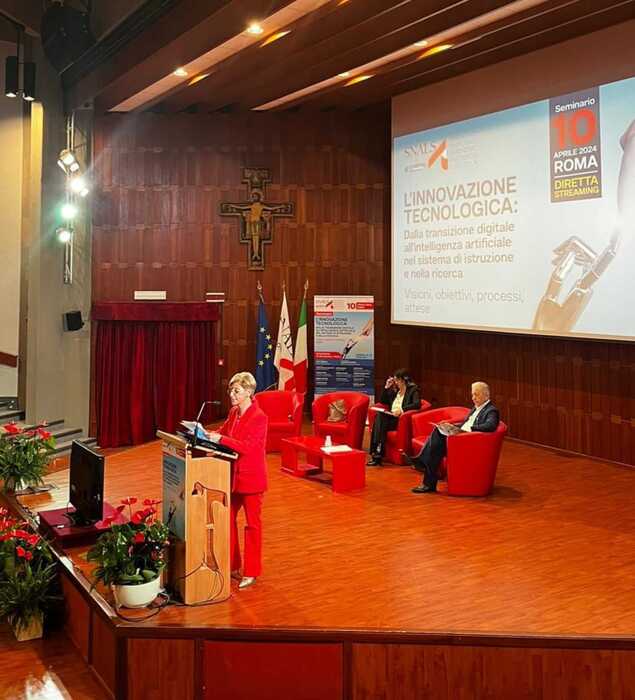With the arrival of Artificial Intelligence "there are certainly risks, but also opportunities, which require a common vision and collaboration between the various institutional and social subjects". This was said by Elvira Serafini, general secretary of Snals, at the seminar on technological innovation, underway today in Rome.
"Our institutions - Serafini reasoned - have in common a dutiful gaze towards the future, because not only is their mission that of instruction, education, the training of the young generations, but also that of contributing to creating the conditions of equity and progress for all citizens. All these processes have implications on different sides. On that of the definition of the function and organization of institutions, on their way of relating with other bodies and with the territory, with their being recipients of innovation and, at the same time, agents of diffusion and promotion of transformation. It is, therefore, an inevitable consequence that these changes also concern all the professional profiles that the Snals-Confsal represents, primarily those of the school, their working conditions, their functions and their tasks, of growing complexity, also in relation to the characteristics of the young generations, their ways of acquiring information, knowledge and skills and their social behaviour. The redefinition of the role of teachers should be a shared objective. Access to knowledge today has radically changed: students no longer learn content only with the mediation of the teacher or the textbook, but they learn and study it online. Technology also affects school-family relationships, with remote conversations with teachers, with online student registration, with remote relationships with secretariats, which also involve critical implications in terms of communication, social inequalities and access to electronic devices.
Schools and teachers are not asked for a simple adaptation, but for an overall rethinking of their role and of the very concept of teaching, in which, even more forcefully, the dimension of research, interpretation, critical analysis, re-elaboration and selection is affirmed. of information, of reflective thought, of the meaning of our social coexistence", concluded Serafini.

